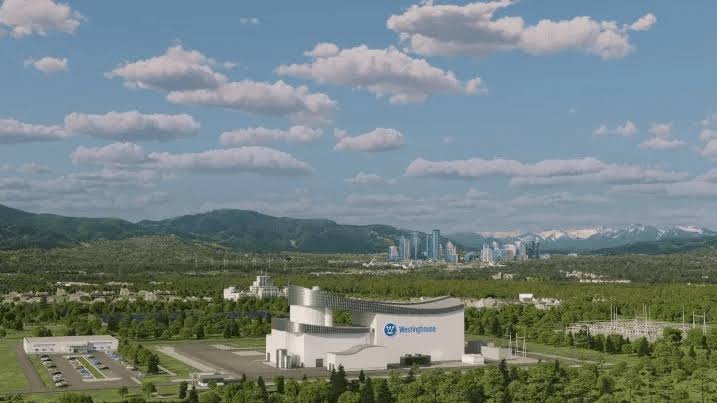The findings say that Microsoft could spend at least $1 billion in South Africa to power its data center with nuclear power. There have been rumors that the company is seeking a Nuclear Technology Principal Programme Manager.
CNBC found a job opening by Microsoft that suggests the company may use controversial nuclear energy to power its future data centers. According to reports, the winner would be “responsible for developing and implementing a global Small Modular Reactor (SMR) and microreactor energy strategy.”
A small nuclear power plant costs $1 billion, according to a CNBC story on Westinghouse. This small power plant can supply electricity to 300,000 homes. Depending on how big the nuclear reactors are, a study says the cost could reach $6.8 billion.
Microsoft could spend anywhere from $1 billion to $6.8 billion in each country with a data center. It’s not easy to run more than 200 data hubs in 35 different countries. South Africa is the only place where Microsoft has two data centers, in Johannesburg and Cape Town.
Read also: Microsoft-backed FAST Accelerator Selects 12 African Startups
Microsoft wants to expand its data centers due to AI.
As the new Principal Programme Manager for Nuclear Technology, I’ll investigate powering Microsoft’s data center with SMRs and microreactors. The Cloud and AI leaders will be central. While preparing for “the next big wave of computing,” CEO Satya Nadella says this.
The corporation has invested heavily in Open AI, which manufactures ChatGPT, the most popular artificial intelligence service, to increase its readiness. The AI system for regenerative growth has cost the corporation $13 billion.
ChatGPT and other AI systems using its solution have generated a data-only sub-industry. This is just the start. AI will take over more enterprises worldwide, increasing the need for data centres.
However, most of these places use energy, which is more expensive and goes against the company’s environmental ideals. Nukes are the answer. The corporation is also using a new US Nuclear Regulatory Commission strategy. The US Nuclear Regulatory Commission first approved an SMR design in January.
Thus, corporations can now build smaller nuclear reactors and electricity facilities. Microsoft founder and CEO Bill Gates chairs TerraPower, an SMR incubator. The business said it “has no deals to sell reactors to Microsoft at this time.”
New center for data in Africa
This is happening at the same time that big companies are opening data centers all over Africa, which shows a lot of promise. A growing number of young people and cheaper internet access is boosting this possibility.
A new study says that by 2027, Nigeria’s business in data centers will be worth $288 million. The poll found that this growth will be driven by internet use, especially 5G, financial technology, telecommunications, banking, and e-commerce businesses.
African countries’ potential could burst if they adopt AI. Digitalised data is Nigeria’s and Africa’s most significant AI concern. If most public and corporate data were still on paper, AI would struggle to launch.
AI operates on digitized data. Thus, automating data is crucial to its survival. Microsoft-backed ChatGPT is doing a lot to change the continent with AI. South Africa has many data centers.
South Africa has two nuclear power stations that generate 6% of its power. Both plants are at the Koeberg Nuclear Power Station, Africa’s only industrial power plant.
Load shedding is causing the country to go black, and many feel new nuclear facilities are the best solution. Smaller power plants like Microsoft’s could lead to data businesses powering their communities. This may be the nation’s plan.




